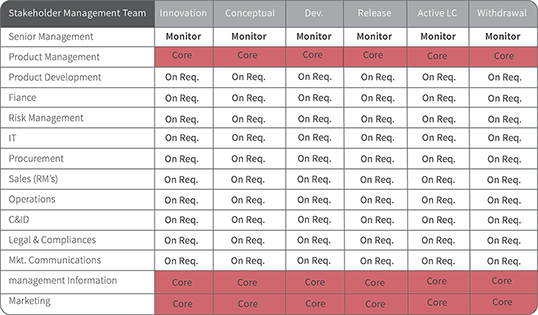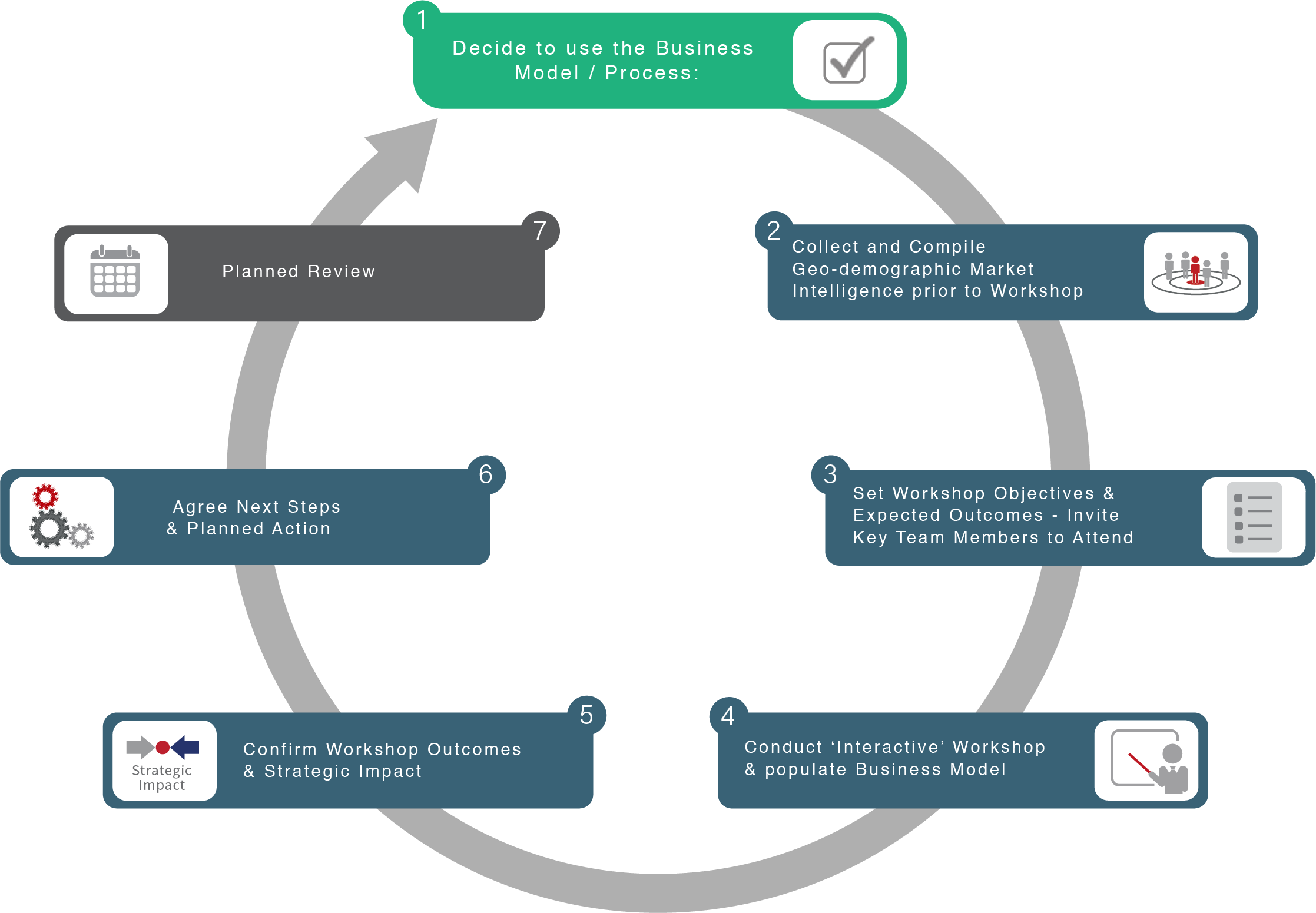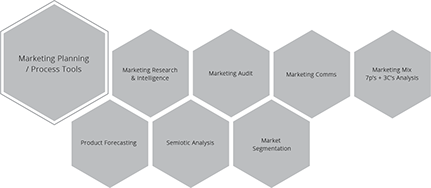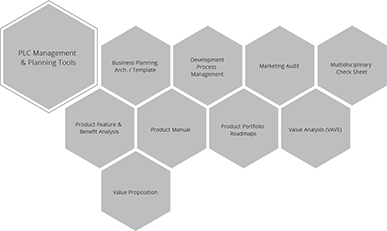Glossary
Logout
©Copyright Arcturus 2022, All Rights Reserved.
7
Terms & Conditions
|
|
|
|
Security & Privacy
Contact
MARKETING AUDIT (INTERNAL / EXTERNAL)
|Introduction
The market audit is a situational analysis of both internal and external environments. The report will cover the ‘key target markets’ as defined by the company strategic plan. The marketing audit is kept up to date with periodic reviews to ensure all data and statements are correct.
The purpose of the marketing audit is to provide an unbiased view on the ‘current’ internal capabilities (core competences) and the external opportunities (market size, growth, economic situation etc.). The information as defined is the ‘core’ data used by the product managers to compile their respective business plans. This approach ultimately means that all data is calibrated before use and integrity remains.
The timeframe or viewpoint for the marketing audit is short medium and long term. This translates into; next 12months, 1 – 2years, 2 – 5 years.
The marketing audit will form the basis of the profiles book which should be a recognised source of Market information.
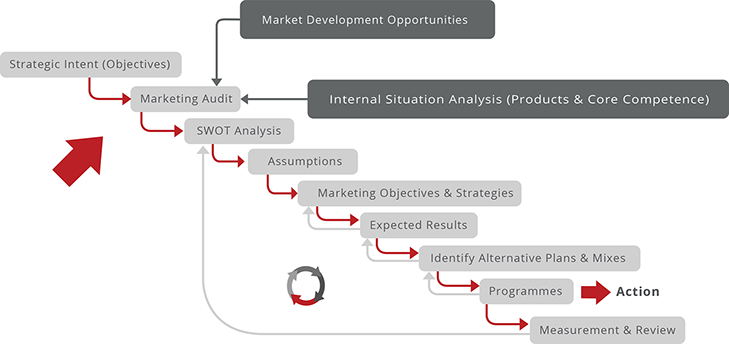
|Time Frames
The following diagram represents various time frames associated with market research and intelligence. It is very important that the overall market is well understood by the Product Manager.

The following diagram indicates the ‘timeframe’ for the ‘profiles’ book and associated management functions / roles; Marketing and Management Information...
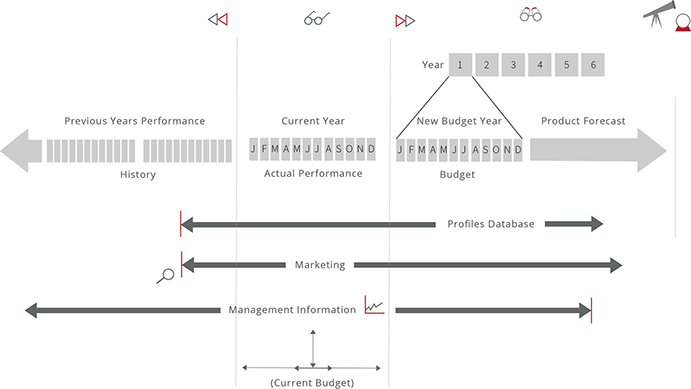
|Method
Introduction
The Market Audit is an internal / external environment study document produced and owned by Marketing. The activity of populating and producing the document is a team event and ensures all aspects of the business have been covered. Scope and Integrity are key success factors of the marketing audit.
|Who Should Attend...
From a Product Management perspective the Marketing Audit is a key document to use in the
preparation of the business plan and input into other elements and processes.
Key / Definition:-
Monitor: Oversees the overall process, required to provide top level strategic objectives as required, performs a management role.
Core: Defines the ‘Core’ team headed (chaired) by the Product Manager required to attend the workshop in alignment with the ‘Product Phase’. Membership is mandatory.
Sec. Mem: Secondary Membership defines an ‘on-standby’ membership requirement and will depend upon the subject area, phase alignment and the project status. Membership is managed by the Product Manager.
On Req. : On Request membership defines a membership that is managed by the Product Manager.
|Related Procedures
The following interrelationship maps indicate; suggested content from other models/processes which may have influence or an effect on the analysis of the title process. The left-hand column indicates information or impact from the named process and the left-hand column indicates on completion of the process/analysis it may have an influence or effect on the listed processes.
Note: A complete set (professional quality) of PMM interrelationship cards are available to purchase - please contact us for further details.
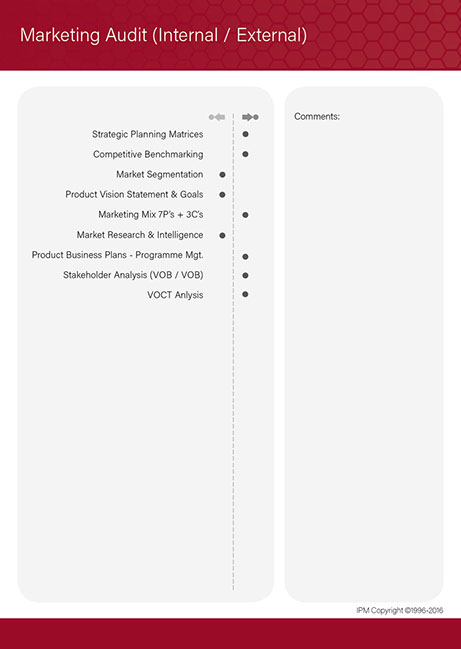
|Strategic Business Models, Workshop Tools & Professional Resources
The IPM practitioner series, is a definitive and integrated training programme for management professionals operating in the Product Management arena. So whether you’re the Managing Director, Product Director, Product Manager or a member of the Multidisciplinary Team we are confident that you will find this particular training series to be one of the best available and an invaluable asset to both you and your company.
PMM - Professional Support







